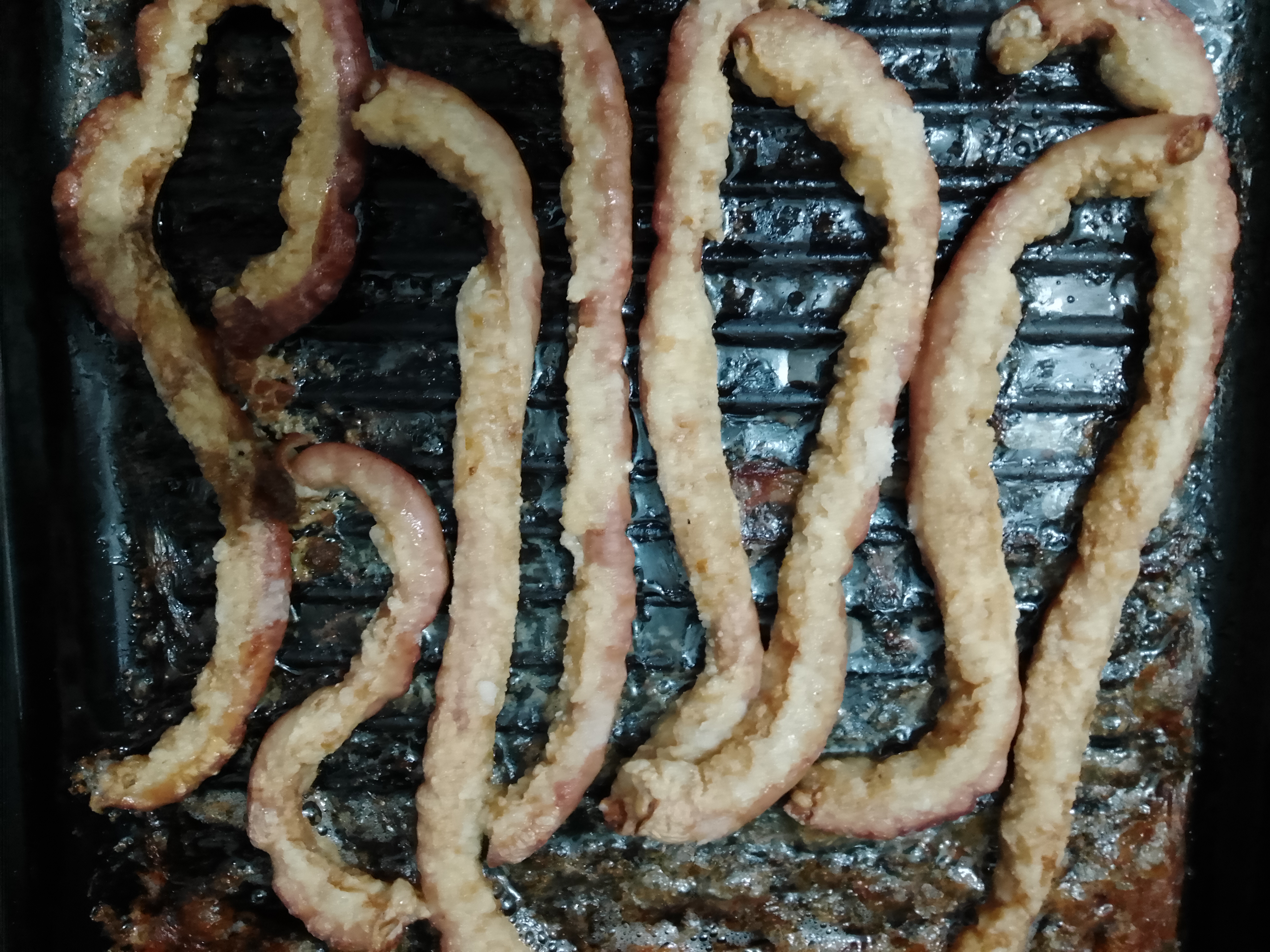A Different Barbecue Night || Una noche de asado distinto [Eng/Esp]

I'd never been a big fan of offal, but that night I was craving something different, something that would make me feel closer to my roots. I'd bought chitterlings and kidneys at the local butcher shop, unsure how I was going to prepare them. It wasn't a common cut in my kitchen, but it was in my memory: my grandfather cooked them like no one else, with a little lemon and patience.
I decided to turn on the oven. I wanted them crispy on the outside and tender on the inside. First, I arranged the chitterlings. That mix of fat and texture, when well done, is a delicacy for those who know how to appreciate it. I arranged them on the tray like coiled snakes, each with its own strange, almost artistic shape. The smell that began to emanate from the oven transported me directly to those Sundays at my grandparents' house.
Then it was the kidneys' turn. I washed them well, let them purge, and placed them next to the chitterlings, trusting that the heat would work its magic. Within a few minutes, the air was filled with a potent, strong, yet savory aroma. I knew I was doing something right.
When they were ready, I took them out of the oven. Golden brown, juicy, with that crust that only time can achieve. I sat down at the table with some bread and a glass of red wine. The first bite was an explosion of flavor: salty, fatty, intense. It reminded me why these foods, though forgotten by many, remain treasures in some kitchens.
It wasn't just food, it was history. It was identity. And that night, between crispy chitterlings and juicy kidneys, I felt closer to my grandfather than ever.

Nunca fui muy fanática de las vísceras, pero esa noche tenía ganas de algo distinto, algo que me hiciera sentir más cerca de mis raíces. Había comprado chinchulines y riñones en la carnicería del barrio, sin saber bien cómo los iba a preparar. No era un corte común en mi cocina, pero sí en mi memoria: mi abuelo los cocinaba como nadie, con un poco de limón y paciencia.
Decidí encender el horno. Quería hacerlos bien crocantes por fuera y tiernos por dentro. Primero acomodé los chinchulines. Esa mezcla de grasa y textura que, bien hecha, es un manjar para los que saben apreciarla. Los dispuse en la bandeja como serpientes enroscadas, cada uno con su propia forma extraña, casi artística. El olor que empezó a emanar del horno me transportó directamente a esos domingos en la casa de mis abuelos.
Después fue el turno de los riñones. Los lavé bien, los dejé purgar, y los acomodé junto a los chinchulines, confiando en que el calor haría su magia. A los pocos minutos, el aire se impregnó de un aroma potente, fuerte, pero sabroso. Supe que estaba haciendo algo bien.
Cuando estuvieron listos, los saqué del horno. Dorados, jugosos, con esa costra que solo el tiempo puede lograr. Me senté en la mesa con un poco de pan y una copa de vino tinto. El primer bocado fue una explosión de sabor: salado, grasoso, intenso. Me recordó por qué estas comidas, aunque olvidadas por muchos, siguen siendo tesoros en algunas cocinas.
No era solo comida, era historia. Era identidad. Y esa noche, entre chinchulines crocantes y riñones jugosos, me sentí más cerca de mi abuelo que nunca.